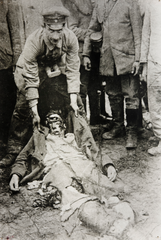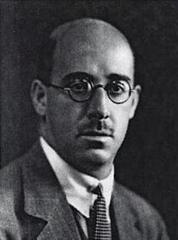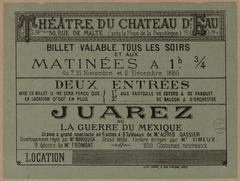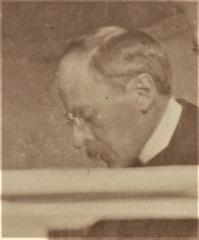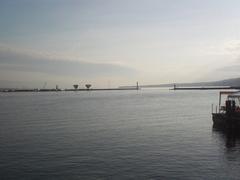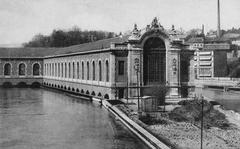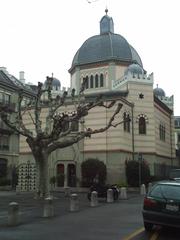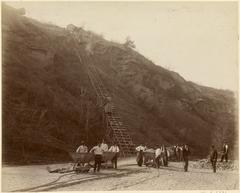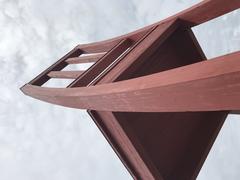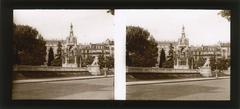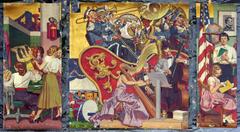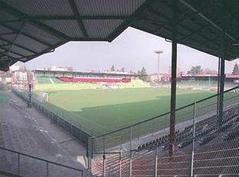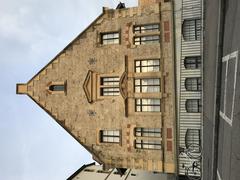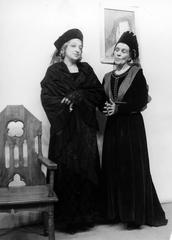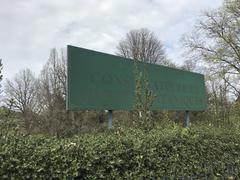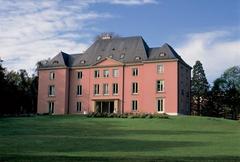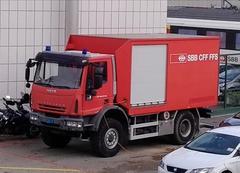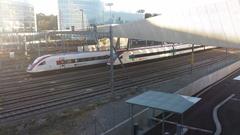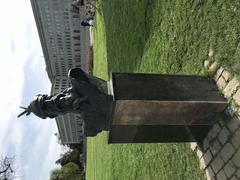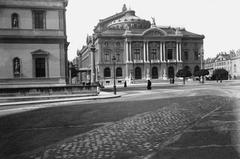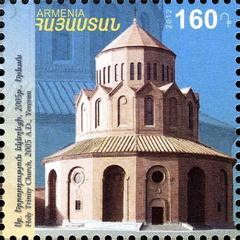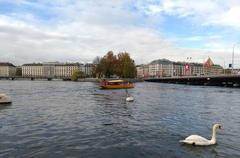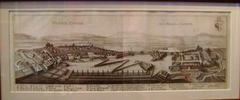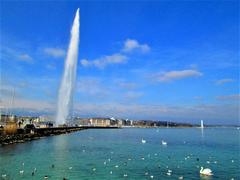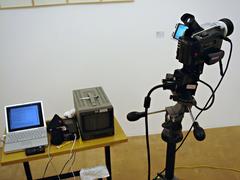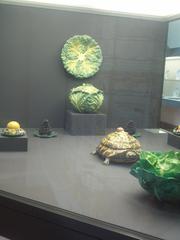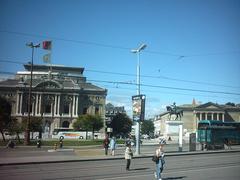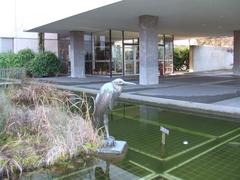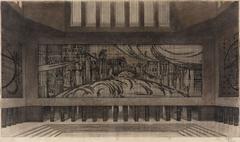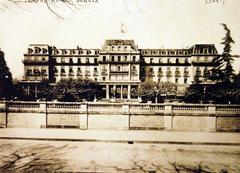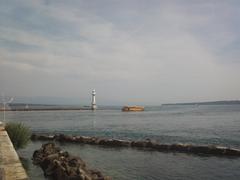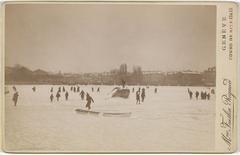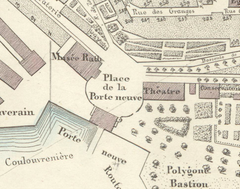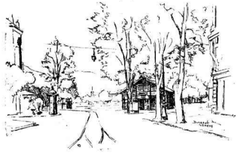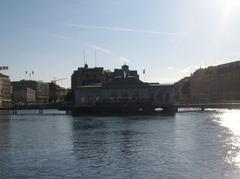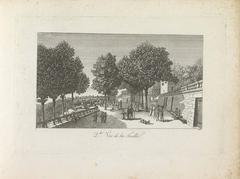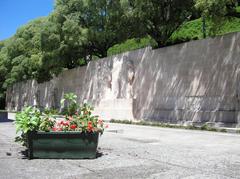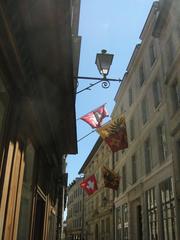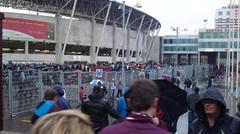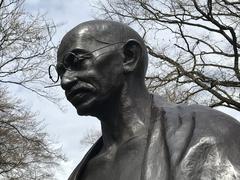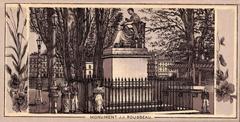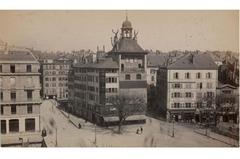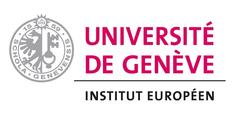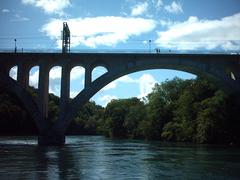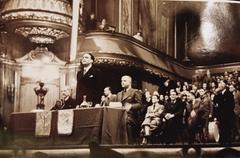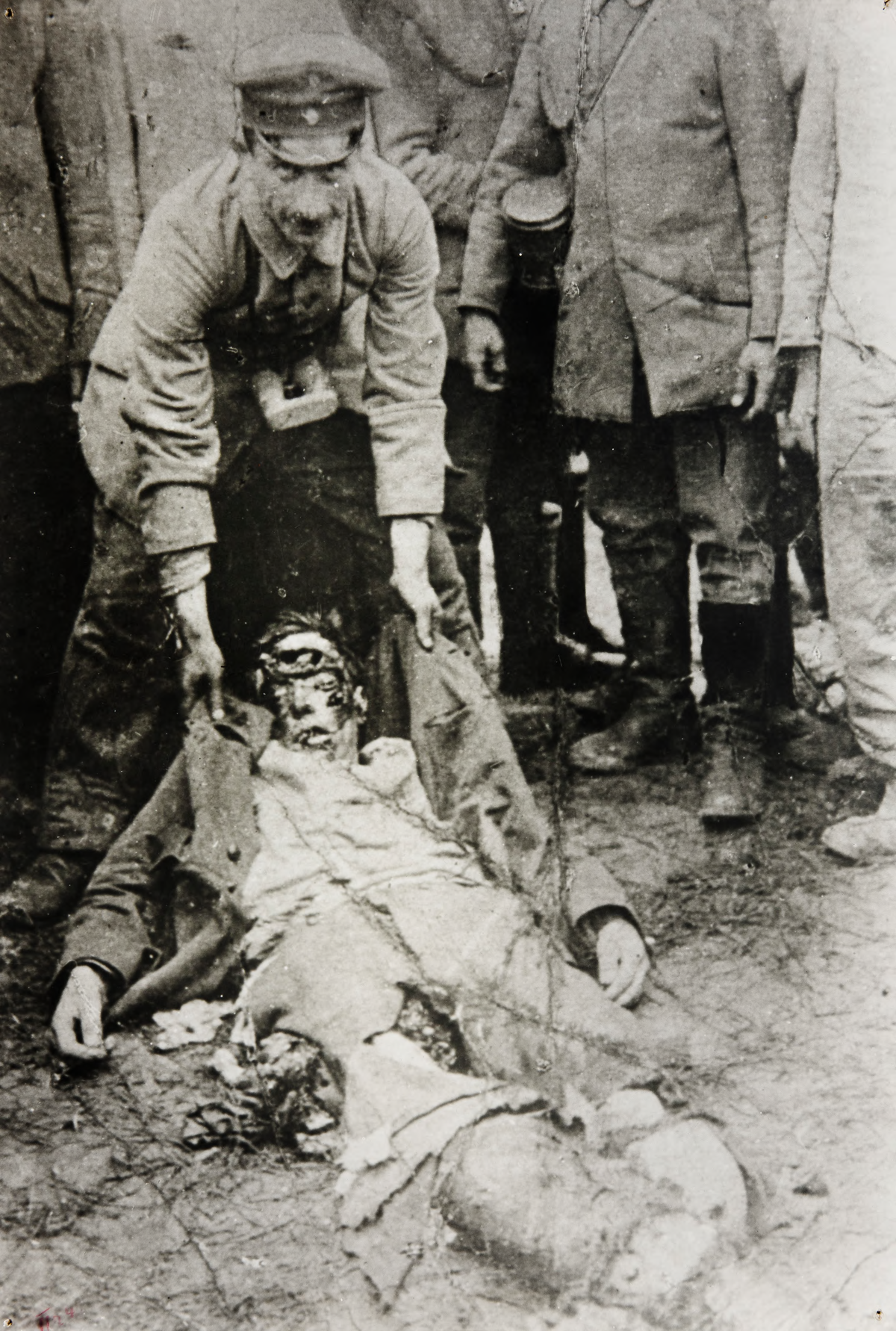
League of Nations Archives Geneva: Visiting Hours, Tickets, and Historical Site Guide
Date: 14/06/2025
Introduction: The Significance of the League of Nations Archives in Geneva
Located within the historic Palais des Nations in Geneva, Switzerland, the League of Nations Archives serve as a vital testament to the origins of modern international diplomacy. Established after World War I, the League of Nations was the first global organization committed to fostering cooperation, peace, and humanitarian action among nations. Its archives, spanning roughly 14 to 15 million pages, document the League’s activities from its creation in 1920 until its dissolution in 1946.
For history enthusiasts, scholars, and visitors to Geneva, these archives offer unparalleled insight into early 20th-century international relations. The archives are accessible to the public free of charge, featuring multilingual guided tours, digital resources, and a location within Geneva’s picturesque diplomatic quarter. This guide provides all the essential information for a successful visit—including hours, ticketing, accessibility, research facilities, and recommendations for nearby attractions. For official updates and further details, consult the UN Geneva Library & Archives website and the UN Archives Geneva Platform.
Table of Contents
- Origins and Founding of the League of Nations
- The League’s Mission and Legacy
- Genevan Headquarters: Palais des Nations
- Exploring the League of Nations Archives
- Visiting Hours, Tickets, and Tours
- Accessibility and Visitor Tips
- Nearby Attractions in Geneva
- Frequently Asked Questions (FAQs)
- Research and Academic Resources
- Visuals and Virtual Resources
- Summary and Visitor Tips
- References and Further Reading
Origins and Founding of the League of Nations
The League of Nations was conceived in the wake of World War I’s devastation, seeking to prevent future conflicts through a new framework of international cooperation. Key figures, such as U.S. President Woodrow Wilson, advocated for its establishment, culminating in the drafting of the League’s Covenant at the 1919 Paris Peace Conference. The League officially began in 1920 but was hampered by the absence of the United States and other key powers (UN Geneva).
The League’s Mission and Legacy
As the first intergovernmental organization dedicated to international peace, the League worked on disarmament, conflict resolution, humanitarian assistance, and the creation of international law. While its influence waned with the rise of World War II, its structures and ideals were foundational to the establishment of the United Nations in 1945, which inherited its archives and headquarters in Geneva (UN Geneva).
Genevan Headquarters: Palais des Nations
Geneva’s selection as the League’s seat reflected its rich diplomatic tradition and neutral standing. The Palais des Nations, completed in the 1930s, remains a landmark of international cooperation. Today, it houses the European headquarters of the United Nations and is a major draw for visitors interested in global governance (Geneva International).
Exploring the League of Nations Archives
The League’s archives are among the world’s most significant collections on early 20th-century diplomacy, peace efforts, and humanitarian initiatives. Holdings include:
- Official Documents: Assembly, Council, and Secretariat records.
- Correspondence and Memoranda: Communications among member states and League officials.
- Conference Reports: Documentation from international meetings and committees.
- Auxiliary Materials: Records from the Permanent Court of International Justice and other bodies.
- Photographs and Maps: Visual documentation of League activities.
The archives also feature private papers of key figures and are available in English and French. A substantial portion is digitized for online access (UN Archives Geneva Platform).
Visiting Hours, Tickets, and Tours
Location: United Nations Library & Archives Geneva, Building B, Palais des Nations (entry via Pregny Pavilion, 14 Avenue de la Paix).
Opening Hours:
- Monday to Friday: 8:30 a.m. – 5:30 p.m.
- Closed on weekends and official UN Geneva holidays (UN Geneva).
Admission: Free; no tickets required for general access. Advance registration is strongly recommended for guided tours and research visits.
Guided Tours: Available in multiple languages by prior arrangement. Tours last approximately one hour and can focus on the archives, the Palais des Nations, or the League of Nations Museum (UN Geneva Library & Archives).
Booking: Reserve tours or research appointments via the official contact page or by calling +41 (0)22 917 1234.
Identification: All visitors must present a valid government-issued photo ID or passport and pass security screening.
Photography: Allowed in most public areas, but restrictions apply in reading rooms. Confirm with staff before photographing.
Accessibility and Visitor Tips
- Access: Wheelchair accessible entrances, elevators, and restrooms are provided. Contact the Visitors’ Service for specific needs (UNOG Practical Guide PDF).
- Getting There: Easily accessible via public transportation (tram lines 15 and 18, stop “Nations”); taxis and walking routes are also available.
- Security: Arrive at least 30 minutes early for security checks.
- Baggage: Only small bags are permitted; large luggage is not allowed (UN Geneva Security Info).
- Renovations: Temporary room closures may occur; check for updates before visiting (UN Geneva Renovation Notice).
Nearby Attractions in Geneva
Enhance your visit with these nearby sites:
- UN Museum Geneva: Exhibitions on the League of Nations and international Geneva. Free admission (MySwitzerland).
- International Red Cross and Red Crescent Museum: Opposite the Pregny Pavilion, focusing on humanitarian history.
- Lake Geneva Promenade: Scenic walking paths with views of Mont Blanc.
- Geneva Old Town (Vieille Ville): Explore historic streets, St. Peter’s Cathedral, and local cafés.
- Broken Chair Sculpture: A symbol of disarmament in Place des Nations.
Frequently Asked Questions (FAQs)
Q: Do I need tickets to visit?
A: No tickets are required for entry; guided tours and research appointments should be booked in advance.
Q: What are the opening hours?
A: Monday to Friday, 8:30 a.m. – 5:30 p.m.; closed on weekends and holidays.
Q: Are tours available in multiple languages?
A: Yes, request your preferred language when booking.
Q: Is the site wheelchair accessible?
A: Yes, with dedicated facilities and staff assistance.
Q: Can I access the archives online?
A: Yes, through the UN Archives Geneva Platform.
Q: Is photography allowed?
A: In public areas, yes; restricted in reading rooms.
Research and Academic Resources
The archives offer comprehensive resources for researchers:
- Reading Rooms: Bright, well-equipped spaces with computers and Wi-Fi.
- Reference Services: Expert staff assist with research queries and digital resources.
- Digitized Collections: Nearly 15 million pages, 15,000 maps, and 3,000 photographs accessible online (UN Geneva LONTAD Project).
- Catalogues and Indexes: Available via the UNOG Library Registry and printed guides such as Hans Aufricht’s “Guide to League of Nations Publications.”
Visuals and Virtual Resources
- Exterior images of the Palais des Nations (alt: “Entrance to the Palais des Nations, Geneva, home of the League of Nations Archives”)
- Photos of the Archives Reading Room (alt: “Inside the League of Nations Archives Reading Room at Palais des Nations”)
- Screenshots of the online catalogue (alt: “Online catalogue for the League of Nations Archives at UNOG”)
- Photos of the UN Museum Geneva (alt: “UN Museum Geneva entrance”)
- Embedded maps and possible virtual tour links are available on the official UN Geneva website.
Summary of Key Information and Visitor Tips
The League of Nations Archives at the Palais des Nations are a cornerstone of international history, open to all visitors free of charge during the week. Guided tours, multilingual support, and digitized collections make the archives accessible for both in-person and remote exploration. Combining your visit with nearby institutions—such as the UN Museum Geneva or the International Red Cross Museum—enriches your understanding of Geneva’s pivotal role in global diplomacy.
Tips for a Successful Visit:
- Book tours or research appointments in advance.
- Arrive early to allow for security and registration.
- Travel light due to bag restrictions.
- Check accessibility or renovation updates before visiting.
- Utilize digital resources for remote research.
For a deeper experience, download the Audiala app for guided audio tours, and stay updated via official channels.
References and External Links
- Visiting the League of Nations Archives in Geneva: Hours, Tours, and Historical Insights, 2025, UN Geneva (https://www.ungeneva.org/en/library-archives)
- Visit the League of Nations Archives at Palais des Nations: Your Complete Guide to Tickets, Hours & Geneva Historical Sites, 2025, Geneva International (https://commons.ungeneva.org/index.php/node/216)
- Exploring the League of Nations Archives in Geneva: Visiting Hours, Access, and Research Guide, 2025, UNOG Practical Guide (https://archives.ungeneva.org/printed-documents-league-of-nations)
- League of Nations Archives Visiting Hours, Tickets, and Essential Tips for Geneva Visitors, 2025, UN Geneva Library & Archives (https://www.ungeneva.org/en/library-archives/library)
- Geneva International, 2025 (https://www.geneve-int.ch/chapter-1-sharing-beauty-geneva)
- MySwitzerland - UN Museum Geneva, 2025 (https://www.myswitzerland.com/en/experiences/musee-des-nations-unies-a-geneve/)
- UNESCO Memory of the World Register, 2017, UN Geneva (https://www.ungeneva.org/en/library-archives/archives)
